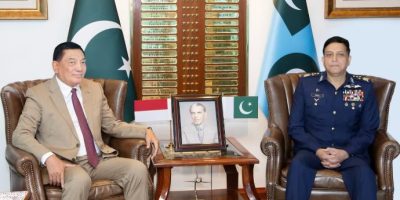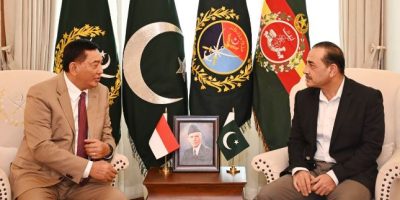Experts discuss pros and cons of growing ultra nationalism

ISLAMABAD (DNA) – Islamabad Institute of Conflict Resolution (IICR) organized a One-day International Conference titled “Growing Ultra-nationalism in Contemporary World”. The panelists included eminent speakers from various parts of the world.
Dr. Salma Malik, Assistant Professor Defense and Strategic Studies QAU, Islamabad moderated the session whereas other speakers included Prof. Dr. Nazir Hussain, Dean Social Sciences QAU, Prof. Dr. Hamit Erosy, Professor, Istanbul Zaim University, Turkey, Mr. Michael Kugelman, Deputy Director South Asia Program, Wilson Centre, Washington, USA and Dr. Waleed Rasool,Director Genaral at Institute of Multi-Track Dilougue, Development and Diplomatic Studies.
While commenting Dr. Nazir Hussain said that over the decade there has been a rise in Ultra-nationalism which has swept across many parts of the world including United States. Moreover, authoritarian civil rules in the United States, France, Spain, Russia, Turkey, China, and India manifested their brands of ultra-nationalist tendencies. Adding further he said thatDonald Trump’s ‘America First’ European ‘protectionism’ ‘Brexit’ and Indian ‘Hindutva’ has created insecurities and uncertainties among the minorities in the majoritarian rules. However, Globalization, Trans-national cooperation and peaceful coexistence were the major causalities of this rise.
While expressing his views Prof. Dr. Hamit Esroy’s discussion encompassed the interaction between the ultra-nationalism’s ideology, political movements, globalization and the implications of the first on the latter. He also touched upon the emergence of ultra-nationalism, its root causes and how it has become a threat for the nation states with the collapse of bipolar system at the end of the cold war. While reflecting on the future he recommended that Muslim countries should draw consensus and invent their own concepts to read the global politics. Moreover, he also said that leaders of the Muslim world should realize that nationalistic polices would lead to more division among them.
The next speaker on the panel was Dr. Waleed Rasool who reflected upon the growing ultra-nationalism in India and how it is affecting the Muslims in India. He said that every aspect of Indian society has been hinduised by Modi and BJP. Furthermore, he shared that it is not ultra-nationalism which Indian society is facing it is Modism which has been inflicted upon them. Adding further he said that the data of voters in the election of India from 2004, 2009,2014, and 2019, reveals an interplay of politics, religion, race, and science that has consolidated the new interpretation of hyper-nationalism in the Modi regime.
The last speaker on the panel was Michael Kugelman who shared his thoughts on the topic. While addressing the audience he said that nationalism is a term that has been with us for centuries. In earlier times, it was a principle that inspired hope and optimism—a force that unified people around shared ideals of nationhood and led to the formation of new countries. However, in more recent times, the term would take on a very different and more sinister connotation—one that conjured up thoughts of xenophobia, authoritarianism, and broader assaults on democracy. He further said that it has been visible and has impacted global politics and the world will have its lasting impacts.
Conference was then followed by Q & A session and concluding remarks by the moderator, Dr. Salma Malik. The conference ended with the vote of thanks by Ms. Sabah Aslam, CEO & Founder Islamabad Institute of Conflict Resolution (IICR).
Related News

Indonesia, Pakistan discuss Air Force training, technology cooperation
RAWALPINDI, JAN 12 /DNA/ – A defence delegation led by Minister of Defence of theRead More

Indonesian Defense Minister meets Army Chief at GHQ
Rawalpindi, 12 Jan /DNA/ – Lieutenant General Sjafrie Sjamsoeddin (Retd), Minister of Defence of theRead More


Comments are Closed